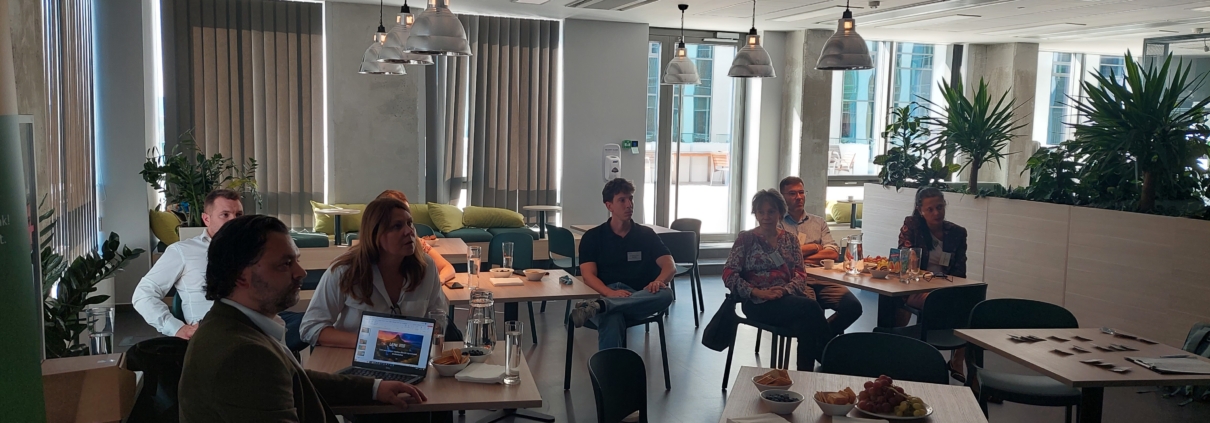What should a company do about biodiversity? – Report on the BCSDH Communication Working Group meeting
How can an international company engage local suppliers? Does every company have a role in biodiversity? Are there domestic biodiversity projects? How can investing in soil-regenerative agriculture be a long-term climate solution for everyone? And what role does communication have in this? – The BCSDH communication working group, hosted by HEINEKEN, addressed these and similar questions on September 26th.
Eszter Varga-Nagy, Corporate Affairs and Communication Director at HEINEKEN Hungária Brewery Ltd., greeted the participants and talked about HEINEKEN’s global and domestic sustainability efforts and initiatives. She highlighted the Domestic Hop project, which supports short supply chains, local producers, and the local community simultaneously.


The rapid decline of biodiversity poses a greater threat than climate change. At several points, we’ve reached tipping points from which there is no return.
Every company is impacted and can influence biodiversity through its suppliers. ESG expectations and achieving net-zero goals are impossible without investments in nature and nature-positive ventures. These were the points discussed by Eszter Chikán-Kovács, BCSDH’s Communications Manager and leader of the working group, offering a preview of BCSDH’s annual publication coming out on October 12th.
Currently, there are few nature-positive projects in Hungary that could serve as tools for agricultural supplier partnerships or external companies to achieve net-zero goals.
This is why initiatives like NESTLÉ’s local LENs program are important and set a good example
Nestlé Purina’s factory in Bükk provides approximately 140,000 tons of raw materials, with 60% sourced from Hungarian farmers. This led the sector to initiate the introduction of the Landscape Enterprise Networks (LENs) program in Hungary, first in the region, adapted from the successful model developed by the consultancy firm 3Keel in the United Kingdom. This initiative aims not only to preserve the natural values of the region but also to ensure the long-term security of its suppliers and the ecosystem’s services. The program is supported by the Ministry of Agriculture in Hungary.
Noémi Csóka, Nestlé’s Corporate Communications and Shared Value Creation Manager, discussed Nestlé’s goal to source one-fifth of its key raw materials by 2025, and half by five years later, from areas managed using soil-regenerative methods. Through regenerative agriculture, the food industry can lessen its environmental impact during raw material production and contribute to the renewal of entire landscapes.


“A result of these interventions is the increased water retention and carbon sequestration capacity of the soil, enhanced biodiversity, improved water quality, reduced soil erosion, and carbon emissions from cultivation. Within the framework of the LENs Hungary program, we also support the establishment of a network of farms to facilitate direct sharing of experiences and knowledge related to soil-regenerative agriculture,” – stated Bálint Lukács, the Project Manager of the LENs project at Preferred by Nature in Hungary, during his presentation.
This is a well-trackable system that provides CO2 and Net Zero metrics, turning it into a genuine nature-positive climate solution.
And what is the role of communication in this matter? Genuine solutions can avoid greenwashing, and every area of a company can act as a catalyst for systemic changes.



